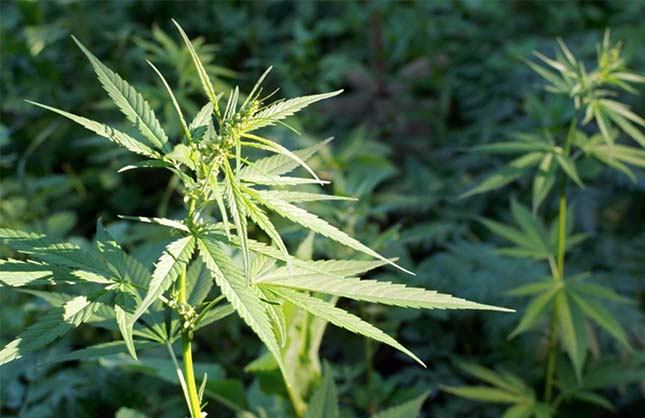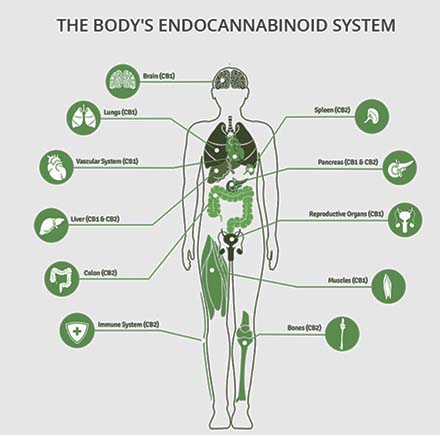Rarely a day goes by without more news about the benefits of hemp oil (also known as CBD oil) and its curative properties, but is it hype or help?
That’s precisely why Vegan News Daily, in a series of articles, will explore whether the revolution in hemp is truly about a miracle product or wishful thinking.

The buzz is big because hemp oil has been associated with multiple health benefits.
These include: greater energy, heighted athletic performance, clarity of thought, reduction in inflammation, enhanced sleep, improved bone and gut health as well as relief from stress, aches and discomforts.
So, What is Hemp Oil?
Hemp oil is an extract from the hemp plant consisting of cannabinoids and terpenes that are put in a carrier oil, such as citrus or palm. It has recently been discovered that hemp extract can have incredibly positive effects on our bodies by interacting with our own endocannabinoid systems.
OK, What is the Endocannabinoid System?
The body’s endocannabinoid system (ECS) is a vast signaling network – much like an internal communications system — of cannabinoid and receptor sites interconnected throughout the body’s organs, glands, and tissue.

This system modulates and regulates nearly all physiological and cognitive processes including the immune system, nervous system, detoxification pathway functions and more.
Why Does the Endocannabinoid System Need Support?
Over time, many people can experience a reduction in their naturally occurring levels of cannabinoids and hence, experience a deficiency. In fact, there are five leading causes:
- Stress – Repeated mental and emotional factors in modern life can trigger ongoing stress responses that can be debilitating.
- Toxins – Environmental and natural toxins can weaken our systems.
- Acidosis – Poor diet over time has been shown to raise the body’s acidity levels and lead to weakened tissues.
- Genetic Weakness – Some people simply have a genetic predisposition to a less robust constitution and immune system.
- Aging – As we get older, it takes longer to repair the brain and the body.
Is This Really a Widespread Problem
Unfortunately, it is estimated that a vast majority of the population has an endocannabinoid deficiency.
So for many of us, our bodies do not produce enough endocannabinoids or enough receptors for the endocannabinoid system to function properly. As a result, the body has trouble sending the chemical signals it needs to stay balanced and perform key functions.
How Does Hemp Help?

One of the top benefits of hemp oil is that it switches the nervous system out of a state of stress. In that way, the body moves from what is called “sympathetic dominance” to become more balanced in the “parasympathetic” state of rest, repair and renewal.
According to Dr. Asher Milgrom, “CBD alone modulates the transcription of over 1,100 genes that make the signaling molecules that NATURALLY reduce inflammation in our central nervous system and throughout our immune system which restores homeostasis to both our immune and central nervous system.”
Experts say that the key to internal balance, also called “homeostasis,” through hemp oil is its ability to increase the naturally occurring chemicals that regenerate the body while stopping the chemical reactions that keep people in near-constant state of stress.
What’s the Bottom Line?

The evidence seems to suggest that hemp oil is a powerful solution to address cannabinoid deficiency because plant cannabinoids, consumed orally, are compatible with our own internal systems.
They in turn can replenish the body’s natural cannabinoid system and do so without interfering with the body’s natural processes.























































